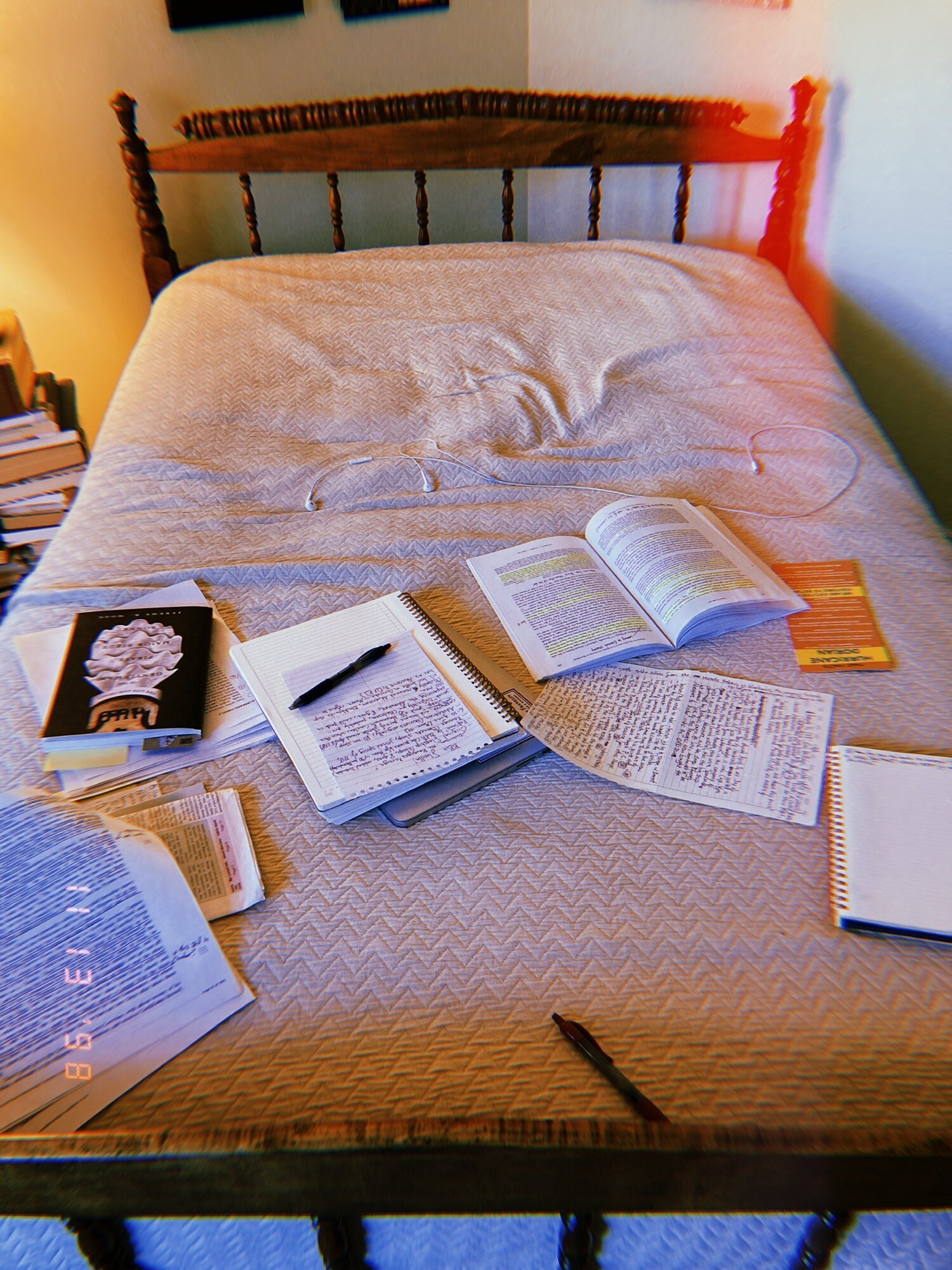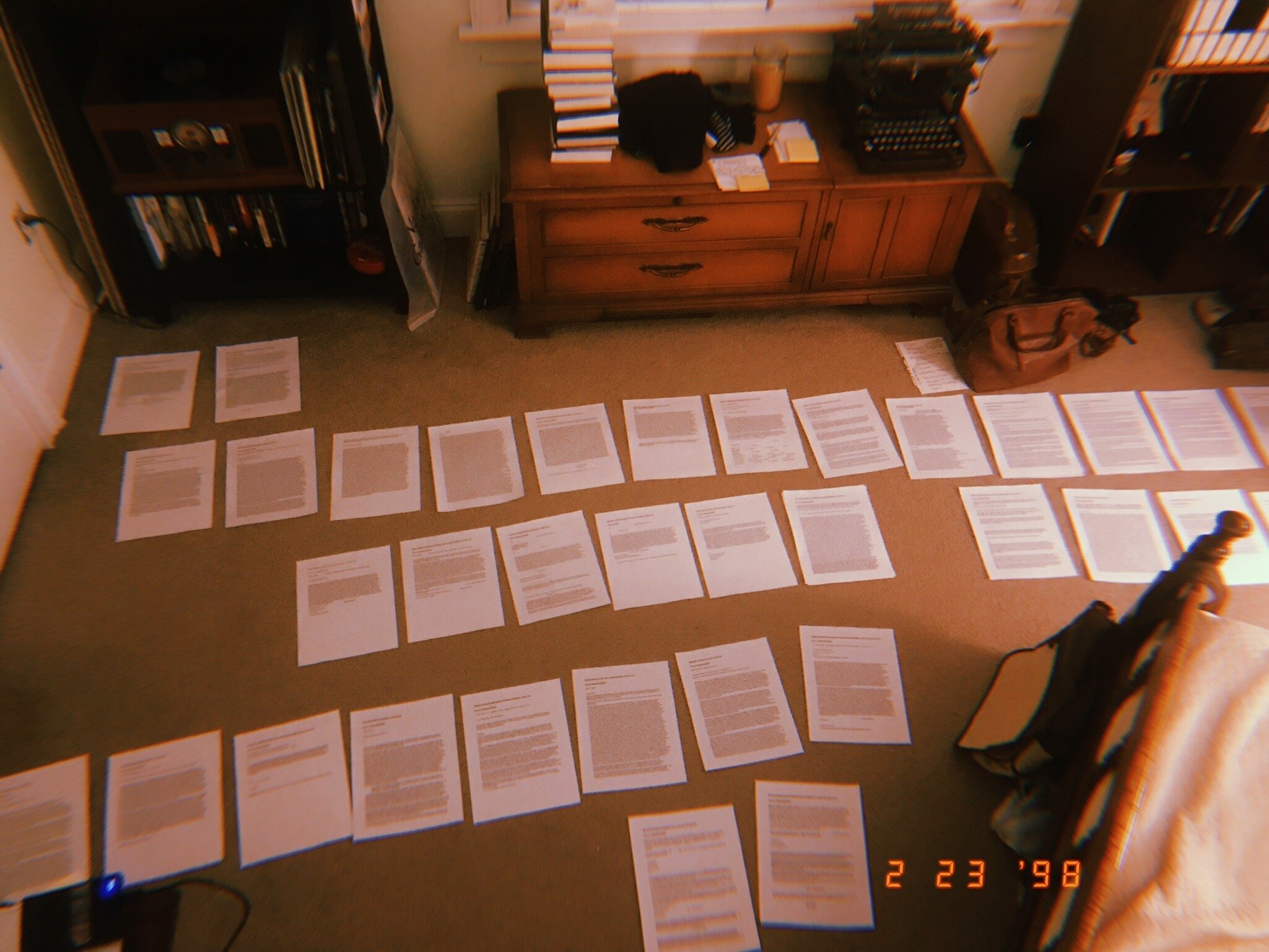FOUR YEARS
{Originally published August 4, 2021}
Sometime in March, I was listening to a Zoom panel of writers talking about writing. One of the authors had been extremely productive over the last year, another had taken the year off and noted that she couldn’t imagine writing past such a wild year with so much in flux, with relational quandaries piled on top. I thought gosh, this would be a tough time to write through, thank goodness I’m not doing that…before remembering I was in the middle of the most challenging project of my career thus far. I got used to that kind of blurriness in my brain. Except for a few cracks and crevices, my entire brain was completely invested in finding out everything I could about a thief who died 300 years ago, and communicating the pirate’s story — despite the fact that he left behind maybe one or two scraps of paper with his own handwriting.
All that to say, every year I compile some of the things I’ve learned about the craft of writing, and jot them down as if I were advising myself four years ago, when I started out. So, here are some of the lessons I somehow managed to remember from a year of strenuous brain work and global tumult!
1) Even with the infinite space the internet provides, there are still cuts you need to make to serve your readers well. Don’t decide how you feel about a piece right after a first or second draft, when your heart is still sore from leaving behind pieces of a story on the cutting room floor. Go to sleep, and take up the work in the morning.
2) There are times when you feel like there’s too much information swirling around in your brain, in the papers that surround your drafting nest, that your brain is not fast or smart enough to pull all the threads together in a cohesive, truthful narrative — not ever, much less on a deadline. The panic is real, and the only real remedy I’ve found is to take a walk, and then just do the next thing. As you work, ideas come loose and tumble out of dusty corners, sentences start to form a chain. By the deadline, you’ll be amazed at the results that started with good old-fashioned crisis.
Relatedly: If a task or section is going to slow momentum during drafting, make a note and do it later. For instance: You forgot that you need to find a good way to explain the relationship between history and commerce. That’s a lot to put into one paragraph, much less to craft that paragraph well. Make notes with as many aggressive asterisks as you like, maybe with a note about where said paragraph should go and a sentence or two if it strikes you, and keep moving. Post-its are your friends.
The aforementioned drafting nest. The longer I work, the more papery items get pulled into my orbit.
3) The floor is? The best place to work for some reason? Look, I have no idea why this is, but at present it seems the best place to think and wrestle with words is on your bedroom floor. Cushions make that a more comfortable prospect. (Also, Stephen King was right about writing with the door closed, and editing with it open — you don’t need to feel guilty about shutting out the world for set spaces of time, as long as you make sure that you’re not living life that way)
4) Rest is part of the order of the world. You need a Sabbath.
5) Listen up: DO NOT DO NOT DO NOT PUT OFF TYPING UP INTERVIEW TRANSCRIPTS. This is a recipe for loading yourself down with 15 hours of by-the-seat-of-your-pants work during already full weeks. For the love of Moses, keep up with this.
6) So, this year had two things that often felt at odds:
- The biggest project of your career so far.
- Almost all of your friends having major, non-repeatable life changes (weddings, moves, babies, etc.).
Every time, it was worth it to drop work and paint a new house/participate in bridesmaid activities/help with nesting (having big, existential discussions in between). A long time ago, a friend told you that you’d never regret erring on the side of generosity. I think in terms of dollars, you’ve taken that to heart — make sure that philosophy carries over into how you spend your time. Start with generosity, and let the rest fall into place.
7) You are tougher than you think, and that toughness/resilience does not have to come at the expense of kindness and tender-heartedness.
Relatedly: Your brain (yes, your strange brain with its mix of analytical strategizing and big feelings) is a gift, if you’ll use both parts of it. There are parts of the Blackbeard/piracy story that other people missed because they went after all the “Aargh! Pirates! Swords! Cannons!” stuff. You came at it as a human interest story, because to you, how the people were interacting — what was motivating them, how they were feeling — was the most interesting thing. Bring that whole brain to projects, and I think you’ll do okay. Sure, sometimes feelings get in the way. But they’re not doomed to being only a hinderance. It can be a gift to be able to cry over history.
8) Do even the small steps well. Someday you’ll be typing at midnight, and flying not by sight but by instrument, depending on your notes — knowing that they have enough detail and context that you are sure you didn’t exaggerate, or jot down a surface-level reading. Throughout your projects, you need to know that you can safely lean your whole weight on the groundwork.
9) For difficult questions, ask them directly. This does not mean to be unkind, but ask what you really want to know.
Relatedly: Bob Woodward talks about how there are very few volunteer sources — you have to go find them, and ask them for an interview. He also says that sources generally don’t offer corroborating documents without being asked. Unsurprisingly, a don of the Washington Post is right. Ye have not because ye ask not. Ask, and be pleasantly surprised.
10) At first, it feels like your writing is nothing but your crutches. All you can see is your pet punctuation, phrases that you use to much, and a general lack of the gloss that experience provides. Four years in, I can tell you that eventually, almost imperceptibly, you start to walk on your own, no crutches necessary. (A future missive on the topic may correct me, but I’m beginning to think that the things that don’t eventually fade away are your style)
11) You can withstand people not liking what you write. It’s not at all earth-shattering to have people disagreeing with you, or thinking “I would have done that differently.” Again, knowing that you know your subject and you’ve done everything in your power to get it right helps with this.
Relatedly: Don’t write for the three people who are reading your work with their arms crossed, who are probably going to find something to be displeased with because that’s what they came to find. Instead, write for the girl who sees the article and roars through it in one sitting. Write for the person who just moved to the area, who needs to find ways to be connected to the land around them. Include little jokes that you know your aunt will immediately text you about once she sees them. Infuse delight, and a lot of the fear falls away.
Smaller notes: You need more notebook space than you originally thought. // You’re a writer, not a social media manager. Act accordingly, and maybe someday you will figure out that golden time ratio. // There’s this thing called Zoom, and after a certain Great Event, you’re going to be doing a lot of interviews over it. In-person is better, but if it comes down to it, try to make sure you can both see each other’s faces. // For better or worse, you bring the same intensity to a piece, whether it will see 150 or 10,000 eyes. This does not bode well for a full-time freelancing career, but will probably be helpful for future work calculations. // Interwoven narratives are really, really fun to play with. //




